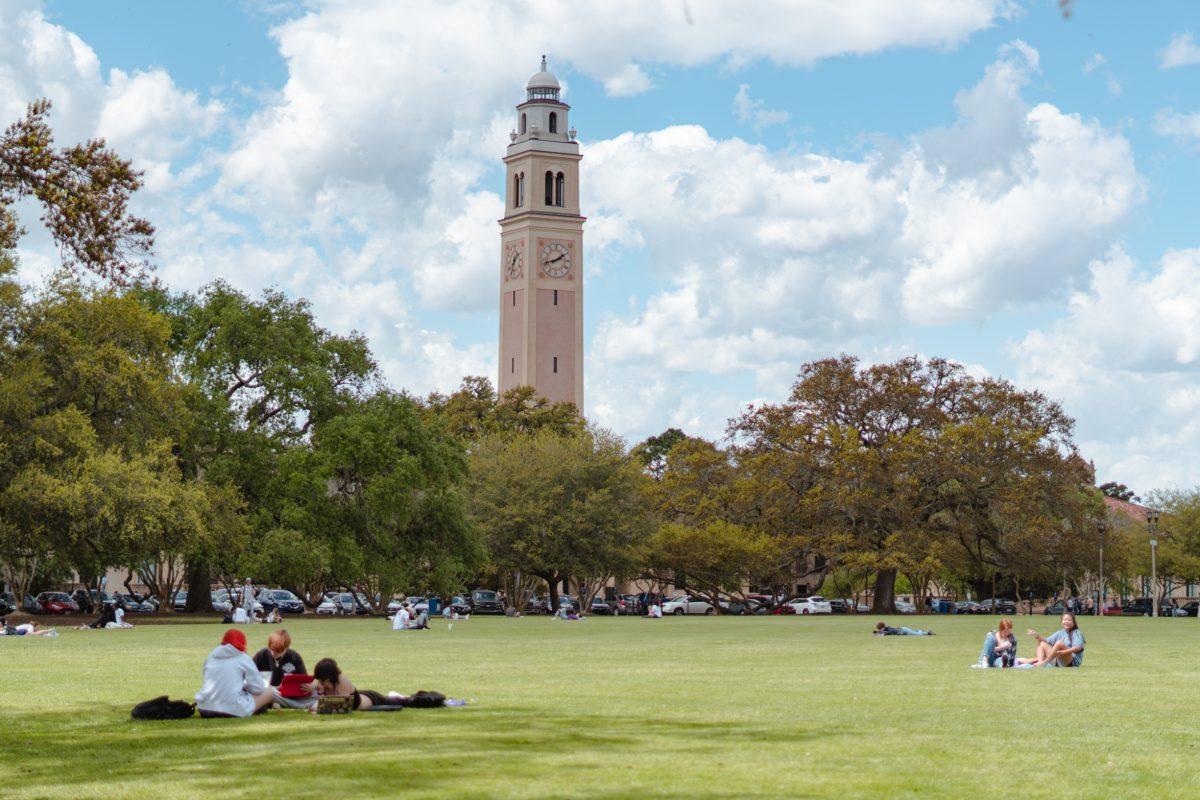Caroline Evers, Spanish senior, is graduating with a degree that only about 1 percent of University students obtain every year.Foreign language and literature is among 12 majors that consistently have less than 5 percent of graduates for the last 10 years, but Evers said she sees this as an advantage.”Because other majors are more popular, it is more difficult to get a job [in those fields], whereas we are able to work for anyone and be molded by the company,” she said. “I could do a million different things, and I am able to work for anyone … plus there is not as much competition.”Sara Crow, communications manager for Career Services, said there are natural ebbs and flows within majors that respond to ups and downs of the economy. She said the decline in the job market has led to less recruitment by employers.”Students need to take advantage of opportunities that are out there,” she said. “Students that are open outside of their major have more opportunities, whereas students who have a narrower scope are subject to a more aggressive job market.”Stacia Haynie, vice provost for Academic Affairs, said the most common major for freshmen is biological sciences, but by the time graduation rolls around, only about 8 percent of students finish in that field.Business and marketing, education, social science and history, engineering, biological and life sciences, liberal arts and general studies, psychology, communication and English have been the most popular majors during the last 10 years, with each category having at least 5 percent of University graduates.Haynie said these degrees may be the most popular because students think they are easily translated into the workplace. She also said some of the less popular majors are seen by students as translating narrowly into the workplace, but this may not be true.”Some companies would rather hire creative people and train them in other things,” Haynie said.Haynie said students graduate in foreign languages much less often than business but said it is an asset to be fluent in another language because as companies expand globally, they must have bilingual employees.”A lot of students come in pre-med but find that their skills and passions don’t align with the curriculum,” she said.Rachelle Lancon, biological sciences junior has decided to change her major to chemical engineering after this semester. “I had to switch because of my GPA, plus [biological sciences] wasn’t my passion,” she said. “I was unhappy with my classes, and one of my friends told me I was an engineer, and I realized that I liked that field much better.”Anthony Oster, counselor for University Center for Academic Counseling, said students commonly change majors during their years at the University because their major requires classes that are too difficult for them.”We see a lot of switches because of requirements,” he said. “As more degree paths become popular and student population increases, departments increase requirements to set a standard for the University’s name.”Oster said with the unstable economy, he believes health care is one market where jobs will be steady.”The fact of the matter is that we are headed toward a recession, even though nobody wants to say it, but health care is one of those industries that you are always going to need,” he said. “With all the turbulence, where is the trust in the financial market?”Kara Smith, chemistry sophomore, said she plans to go to dental school, and it comforts her that her planned job is something people will need no matter what the economy looks like.Some students are disappointed the University doesn’t offer pre-med, pre-law and pre-veterinary majors, but Haynie said there is good reason for this.”Students going into law [or medical or veterinary] school can major in anything,” she said. “They are interested in students who can market ideas and who can think analytically and can communicate.” Haynie said some graduate schools have requirements, such as certain classes students must take as undergraduates, so counselors work with students to help them achieve their goals.”One of the things we want students to leave here with is the ability to succeed in life,” she said. Crow said even if it is hard to tell what will happen in the economy, University students are in a good position.”One of the best things you can have going into the job market is a college degree,” she said. —-Contact Ellen Zielinski at ezielinski@lsureveille.com
Common majors see few fluctuations during past 10 years
October 26, 2008






